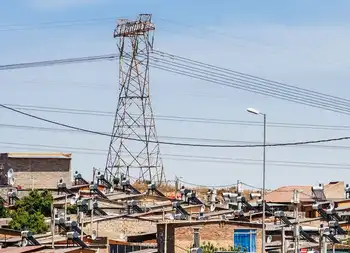Emissions target will have to wait
UN Secretary General Ban Ki-moon agreed that a demand for rich nations to slash greenhouse gas emissions by 2020 might be too ambitious for the climate talks.
His intervention came as a relief to Canada, which is pitted alongside the United States, Australia, Japan and New Zealand against the European Union and developing countries.
Environment Minister John Baird rejects the EU's 2020 target on two counts, saying Canada could not attain it and that the Bali conference should avoid any divisive debate over targets.
Baird says countries should simply agree to launch negotiations toward a post-2012 world climate treaty, set basic guidelines for the talks and agree to complete them by 2009.
He says he's willing to include some numeric benchmarks in the final draft of the Bali conference communiqué to help guide negotiations – but not the ones favoured by Europe.
Developing countries and most developed ones want a statement that would ask rich countries to seek 25 to 45 per cent reductions from 1990 levels by 2020.
Baird says he has no problem with another proposal to cut the world's overall emissions in half by 2050. But he said Canada cannot accept the tougher 2020 goal.
The Canadian government says that target would force Canada to cut emissions by 38 per cent to 53 per cent within a decade, when the country's emissions are actually still going up. "I'll put reality on the table," Baird said. "To suggest that we could get a 52 per cent reduction in Canada in 12 years – there is no one in the world who believes that is possible."
The UN chief appeared determined to avoid a stalemate over the 2020 figure. Ban urged richer countries to be flexible, referring specifically to the United States.
He suggested that any talk about tough targets might have to wait.
"Realistically, it may be too ambitious," the secretary general told reporters. "Practically speaking, this will have to be negotiated down the road."
The two-week conference brings together delegates from nearly 190 countries tasked with launching negotiations for an international accord to succeed the Kyoto Protocol in 2012. Delegates are talking about how warmer temperatures are already playing havoc with the Earth's climate.
The conference has heard about crumbling infrastructure in Canada's North, the proliferation of pine beetles killing its western forests, worsening droughts in dry countries and island states being steadily submerged under rising seas.
Talks picked up pace with the arrival of ministers and heads of state who urged the world to impose deep cuts in emissions to head off even more dire consequences from climate changes.
Also, Baird delivered his long-awaited emissions timetable, serving notice on big industrial polluters that they have six months to report on their greenhouse gas emission levels before being hit with binding reduction targets as of 2008.
Companies will have to deliver data on their emissions by May 31. Their reports will be audited and the figures will be used to impose new targets on them starting later in the year.
Related News

South Africa's Eskom could buy less power from wind farms during lockdown
JOHANNESBURG - South African state utility Eskom has told independent wind farms that it could buy less of their power in the coming days, as electricity demand has plummeted during a lockdown aimed at curbing the spread of the coronavirus.
Eskom, which is mired in a financial crisis and has struggled to keep the lights on in the past year, said on Tuesday that power demand had dropped by more than 7,500 megawatts since the lockdown started on Friday and that it had taken offline some of its own generators.
The utility supplements its generating capacity, which is mainly derived from coal,…





